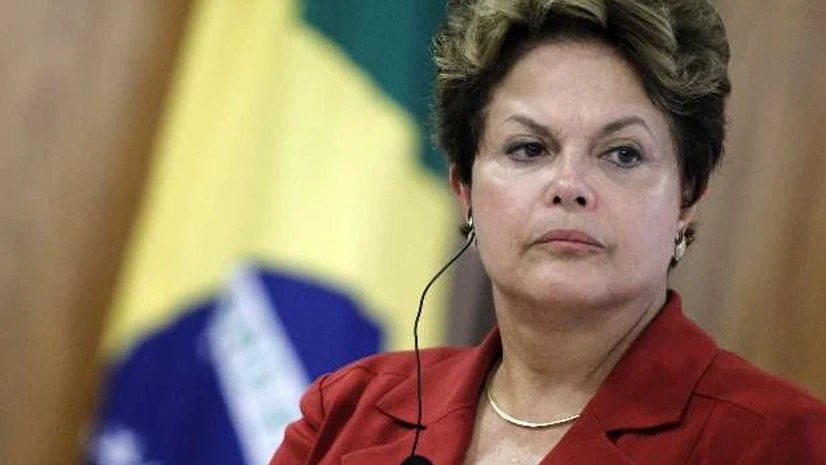Critics branded her aloof and inaccessible in leadership, but since being suspended as president pending impeachment proceedings, Brazil's Dilma Rousseff is reaching out to the nation in a feverish online campaign.
This week, the 68-year-old leftist leader took to Facebook to answer users' questions — taking the opportunity to lay into one of the men who got her suspended, the now acting president Michel Temer.
Ahead of her suspension, media had painted a picture of a lonely and isolated Rousseff hunkering down in the presidential residence, where she is still allowed to live, as she prepared her defense against a Senate impeachment trial.
Instead, the former guerrilla member, who was tortured during Brazil's 1964-1985 military dictatorship, has gone on the attack openly on social media networks.
She is accused of fiddling government accounts to hide the state of Brazil's economy as she ran for re-election in 2014. She says the impeachment drive is a "coup" by Temer and other rivals.
Temer, like Rousseff, suffers low approval ratings. As well as having to win over Brazilians to his liberal economic reforms, he now also faces a fierce online campaign from the suspended leader who refuses to go quietly.
More From This Section
Practically, all the measures Temer and his government have passed since he stepped in as interim head of state on May 12 have been met by scornful messages by Rousseff on Twitter.
On Wednesday she sent "a big kiss" in a message on the popular messaging service to the cast of a Brazilian film who held up signs in her support on the red carpet at the Cannes Film Festival.
On the same day she discussed Temer's planned social welfare cuts.
On Thursday she fielded questions on Facebook about Temer's decision to downgrade the culture ministry to a smaller ministerial department.
Rousseff appeared on her page smiling, seated at a laptop computer alongside her former culture minister Juca Ferreira.
Rousseff said that creating the culture ministry was one of the first measures she took after becoming president.
"That was not a coincidence. The end of the dictatorship allowed the country to dream of greater liberties," she said.
"It is as if they wanted to return to the authoritarian past," she added.
The man seen as the main mastermind behind the impeachment drive, former congressional speaker Eduardo Cunha, is fighting for his political life, like Rousseff.
He has been suspended by the Supreme Court over bribery allegations.

)
